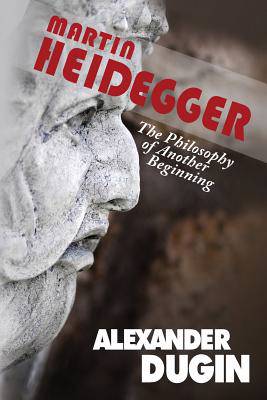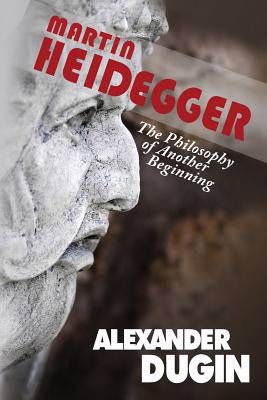
- Afhalen na 1 uur in een winkel met voorraad
- Gratis thuislevering in België vanaf € 30
- Ruim aanbod met 7 miljoen producten
- Afhalen na 1 uur in een winkel met voorraad
- Gratis thuislevering in België vanaf € 30
- Ruim aanbod met 7 miljoen producten
Zoeken
€ 49,45
+ 98 punten
Uitvoering
Omschrijving
There are few philosophers more influential, more misunderstood, more admired, and more feared than Martin Heidegger. He is simply unavoidable for an understanding of modern thought, modern culture, and the modern world. As Alexander Dugin explores in *Martin Heidegger: The Philosophy of Another Beginning*, Heidegger traces a particular conception of being and truth-begun with the pre-Socratics and cemented with Plato and Aristotle-that has, over millennia, led the West to embrace materialism, egalitarianism, and nihilism. It is Heidegger, argues Dugin, who understood this most deeply; it is thus Heidegger who opens up space for "Another Beginning"-a new grounding for human experience. Drawing on the history of philosophy, political ideologies, and Heidegger's relationship to Germany and Europe-and including a useful bibliography and glossary of terms-Dugin's analysis will be of great interest to scholars as well as those encountering Heidegger for the first time.
Specificaties
Betrokkenen
- Auteur(s):
- Vertaler(s):
- Uitgeverij:
Inhoud
- Aantal bladzijden:
- 472
- Taal:
- Engels
Eigenschappen
- Productcode (EAN):
- 9781593680374
- Verschijningsdatum:
- 11/11/2014
- Uitvoering:
- Paperback
- Formaat:
- Trade paperback (VS)
- Afmetingen:
- 152 mm x 229 mm
- Gewicht:
- 625 g

Alleen bij Standaard Boekhandel
+ 98 punten op je klantenkaart van Standaard Boekhandel
Beoordelingen
We publiceren alleen reviews die voldoen aan de voorwaarden voor reviews. Bekijk onze voorwaarden voor reviews.










